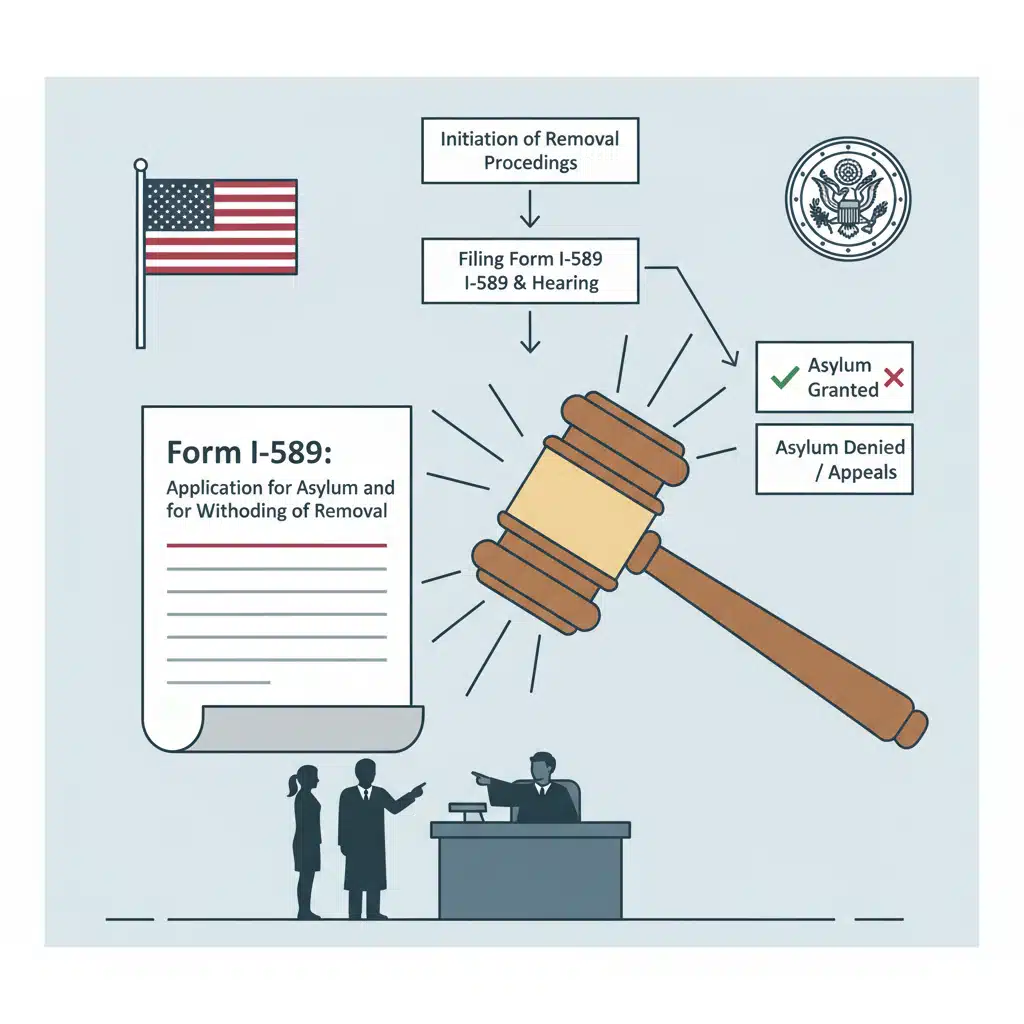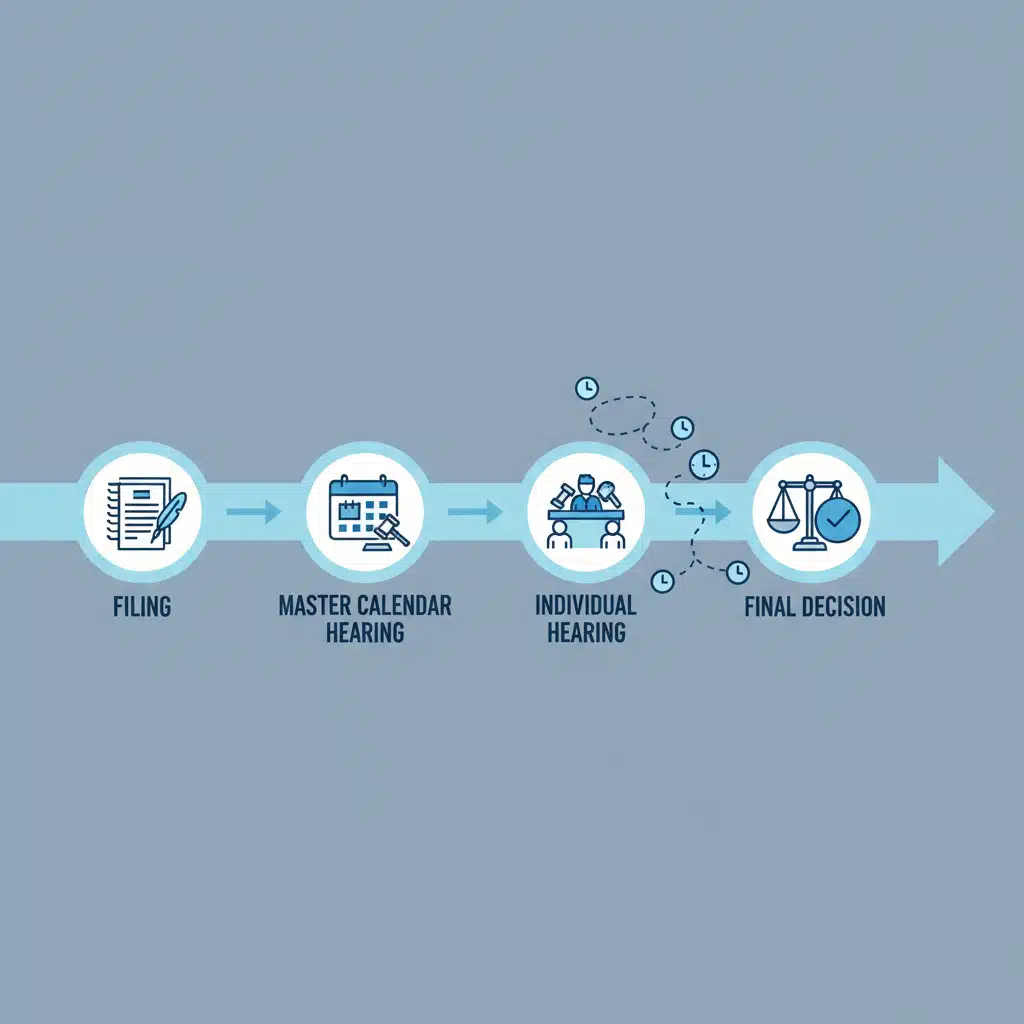Deciding to meet with an immigration lawyer is a crucial first step toward resolving your case. This initial consultation is your opportunity to get a professional assessment of your situation, understand your legal options, and decide if the attorney is the right fit for you. To make the most of this important meeting, you need to come prepared. A well-prepared client allows the lawyer to provide more accurate and effective advice from the very beginning.
This guide will walk you through the essential steps to prepare for your consultation with an immigration lawyer in the Dallas/Fort Worth area, ensuring you get the clarity and direction you need.
Why Preparation Matters
An initial consultation is a fact-finding mission for both you and the attorney. The lawyer needs specific information to analyze your case, identify potential challenges, and outline a possible strategy. If you arrive unprepared, the attorney may have to spend valuable time gathering basic details that you could have organized beforehand.
By preparing, you can:
- Maximize your time: Consultations are often time-limited. Being organized ensures you cover the most critical aspects of your case.
- Get more specific advice: The more detailed information you provide, the more tailored the lawyer’s guidance will be.
- Save money: A productive first meeting can prevent the need for an immediate follow-up session to cover missed details, ultimately saving you on consultation fees.
- Feel more confident: Walking into the meeting organized and ready will reduce your anxiety and help you communicate more clearly.
Step 1: Gather All Relevant Documents
Your personal history and immigration journey are told through your documents. Collecting and organizing these papers before your meeting is the most important preparation you can do. It’s better to bring a document you might not need than to leave a critical one at home.
Create a folder with the following items, if they apply to your situation:
Personal Identification:
- Passport (current and expired)
- Birth Certificate (with certified translation if not in English)
- Driver’s license or state-issued ID
- Social Security card (if you have one)
- Marriage certificate and/or divorce decrees (with translations)
Immigration History Documents:
- All visas, entry stamps in your passport, and I-94 Arrival/Departure records.
- Any previous immigration applications or petitions you have filed (e.g., I-130, I-485, I-589).
- Receipt notices, approval notices, Requests for Evidence (RFEs), and denial notices from USCIS.
- Your Alien Registration Number (A-Number), if one has been assigned to you.
- Permanent Resident Card (Green Card) or Employment Authorization Document (Work Permit).
- If you are in removal proceedings, bring your Notice to Appear (NTA) and any other documents from the immigration court.
Criminal History (If Applicable):
- If you have ever been arrested or convicted of a crime, you must bring all certified court dispositions. This includes records for charges that were dismissed or expunged. Failure to disclose a criminal record can have severe immigration consequences.
Supporting Evidence for Your Case:
- For family-based cases: Birth certificates of your children, proof of your relationship (e.g., photos, joint bank statements, lease agreements).
- For employment-based cases: Your resume or CV, educational degrees and transcripts, and any correspondence from your sponsoring employer.
- For asylum cases: Any documents, articles, or personal statements that support your fear of returning to your home country.
Organize these documents chronologically to make them easy for the attorney to review.
Step 2: Write Down Your Timeline and Key Facts
Your memory is fallible, especially under stress. Before your consultation, write down a clear timeline of your immigration history.
Include key dates such as:
- Each entry into the United States.
- Periods of any unlawful presence (“overstay”).
- Dates of marriage, divorce, or birth of children.
- Dates of any arrests or encounters with law enforcement.
- Dates you filed previous applications and received decisions.
Having this timeline written down ensures you don’t forget important details and provides the Immigration Lawyer with a clear, concise history to analyze.
Step 3: Prepare a List of Questions
This consultation is your chance to interview the attorney, just as they are assessing your case. Come with a list of questions to help you make an informed decision. Consider asking:
- Based on what I’ve told you, what are my options?
- What do you see as the biggest strengths and weaknesses of my case?
- What is your experience with cases like mine in the Dallas/Fort Worth area?
- What is the general timeline for this type of case?
- What are the total estimated costs, including legal fees and government filing fees?
- How does your firm handle communication? Who will be my primary point of contact?
- What is the next step if I decide to hire you?
Asking these questions shows you are serious about your case and helps you understand exactly what to expect.
Step 4: Be Honest and Complete
An immigration lawyer is your advocate. To represent you effectively, they must know all the facts—the good, the bad, and the ugly. Withholding information about past visa denials, criminal history, or periods of unlawful presence will only hurt your case in the long run.
Attorney-client privilege protects your conversations, so you should feel safe being completely transparent. A small detail you think is unimportant could be a critical factor, and an issue you think is disqualifying may have a legal solution you are not aware of. Always tell your lawyer the whole truth.
Your Consultation is the Start of a Partnership
Preparing for your initial consultation sets the stage for a successful attorney-client relationship. By gathering your documents, outlining your history, and preparing thoughtful questions, you empower your Dallas/Fort Worth immigration lawyer to provide the best possible guidance. This preparation is an investment in your own case, helping you move forward with confidence and a clear plan of action.
Official Government Resources
While your lawyer is your primary source for legal advice, you can access forms, check case statuses, and find general information on these official government websites.
- U.S. Department of Homeland Security (DHS): The parent department for federal immigration agencies. Visit DHS
- U.S. Citizenship and Immigration Services (USCIS): The agency in charge of processing immigration and citizenship benefits. Visit USCIS
- U.S. Immigration and Customs Enforcement (ICE): The agency responsible for interior immigration enforcement. Visit ICE






